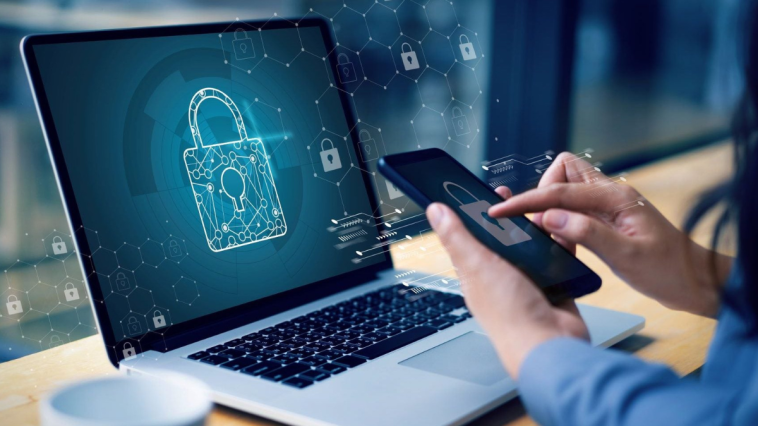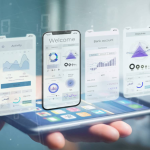Technology is now a constant part of everyday life, quietly shaping how we wake up, work, travel, and stay in touch. Many of the tools we use have become so familiar that we hardly notice how much they help anymore.
Whether it’s keeping track of time, finding our way around, or chatting with friends and family, technology plays a key role in how we go about our day. It delivers convenience, saves time, and works in the background so we can get on with the tasks that need our attention.
The Internet of Things
Connected devices are changing how we live at home by linking everyday items to the internet. In a smart home, heating, lights, and security systems can be managed from your phone or tablet, so you don’t have to be at home to get what needs doing done.
These tools can learn your routines, adjust themselves automatically, and help cut down on energy use by working only when needed. From ordering fridge items you’re running low on to receiving alerts when someone is at the door, this kind of technology brings greater comfort, convenience, and security to daily life.
Augmented Reality
You can use augmented reality to find your way when you’re in a new place. Using immersive technology, your phone shows directions and information right on top of what you see, so you don’t have to keep looking down at an unwieldy map.
As you walk around, a quick glance at your device will help you see the names of streets, nearby shops, or facts about certain landmarks. This kind of information makes it easier to get around and learn about your surroundings without missing a step, giving you more confidence when travelling somewhere unfamiliar.
Cybersecurity
Keeping your personal information safe each day depends heavily on strong cybersecurity measures. It protects your money and helps make sure important services, like banking and shopping online, work without problems.
Without good cybersecurity, you may face serious trouble from fake emails, harmful software, or attacks that lock your files. These risks might lead to someone stealing your identity, you losing money, or your devices stopping working properly.
Staying vigilant about cybersecurity helps you avoid these dangers and keeps your digital life secure.
Blockchain
The technology behind cryptocurrencies such as Bitcoin is known as blockchain. Its structure uses a shared digital ledger that is spread across many computers, enabling quick money transfers across borders without the need for banks or traditional currency systems. Each transaction is recorded in a block and secured using cryptographic hashes, making it extremely difficult to alter or hack the system.
Real money online gambling sites like Lucky Creek casino use blockchain to provide secure, transparent transactions, and this service is accessible to anyone with internet access, regardless of their location in the world.
3D Printing
3D printing lets you create replacement parts for broken items or those that are no longer available in shops. This means you don’t have to throw anything away when it stops working, which will save money and reduce waste. You can also make personalised products that match your style or needs, such as custom phone cases or unique gifts.
Whether you want to repair something or create something new, 3D printing gives you more control and practical options at home.
The Metaverse
Virtual meetings and events are making it easier for you to connect with people no matter where they live. New technology creates online spaces that feel more real and help you take part in meetings or get-togethers without having to travel.
This means distance is no longer a problem, and talking or working with others in the metaverse can feel like you are in the same place. These changes help you stay connected with people far away, whether you’re using it for work or while catching up with friends.
Artificial Intelligence
New technology is changing how healthcare works and can make a real difference for you. Artificial intelligence helps doctors find health problems more quickly and with greater accuracy. It also supports them in choosing the best treatments and discovering new medicines. You could get the right care sooner and with less guesswork, improving your chances of staying healthy or recovering faster when you’re unwell.
Automation
Some jobs may disappear as machines take over routine tasks, a change driven by automation across many industries. At the same time, this process creates new jobs that involve designing, running, and maintaining these automated systems. We need people to ensure this technology functions properly and is continuously being improved.
Virtual Communities
Virtual communities play a big role in everyday life by changing the way you interact with others and find information. They give you a place where you can connect with people who share your interests or challenges.
These online groups can give you support when you need it, help you learn new information, and create chances for you to grow personally. Being part of a virtual community can also improve your mood and sense of belonging, making daily life feel less lonely as you are more connected to others.
5G
5G technology is changing the way you experience the internet every day. With faster download speeds and quicker responses, it makes watching videos, playing Crash Games, and video calling a breeze.
This improved connection helps you work from home more effectively and access medical advice without leaving your house. It also supports smart city systems that make transport and services better.
Overall, 5G allows new ways to stay connected, entertained, and productive, making daily activities easier and more enjoyable wherever you are.
Going Forward
Technology keeps advancing, with new improvements and updates happening all the time. The devices and services you rely on today will eventually be replaced by improved versions, as developers work on faster and more efficient solutions.
Though change happens rapidly, technology’s role in our lives remains constant. It simplifies daily chores, helps maintain connections, and creates opportunities we didn’t have before.




